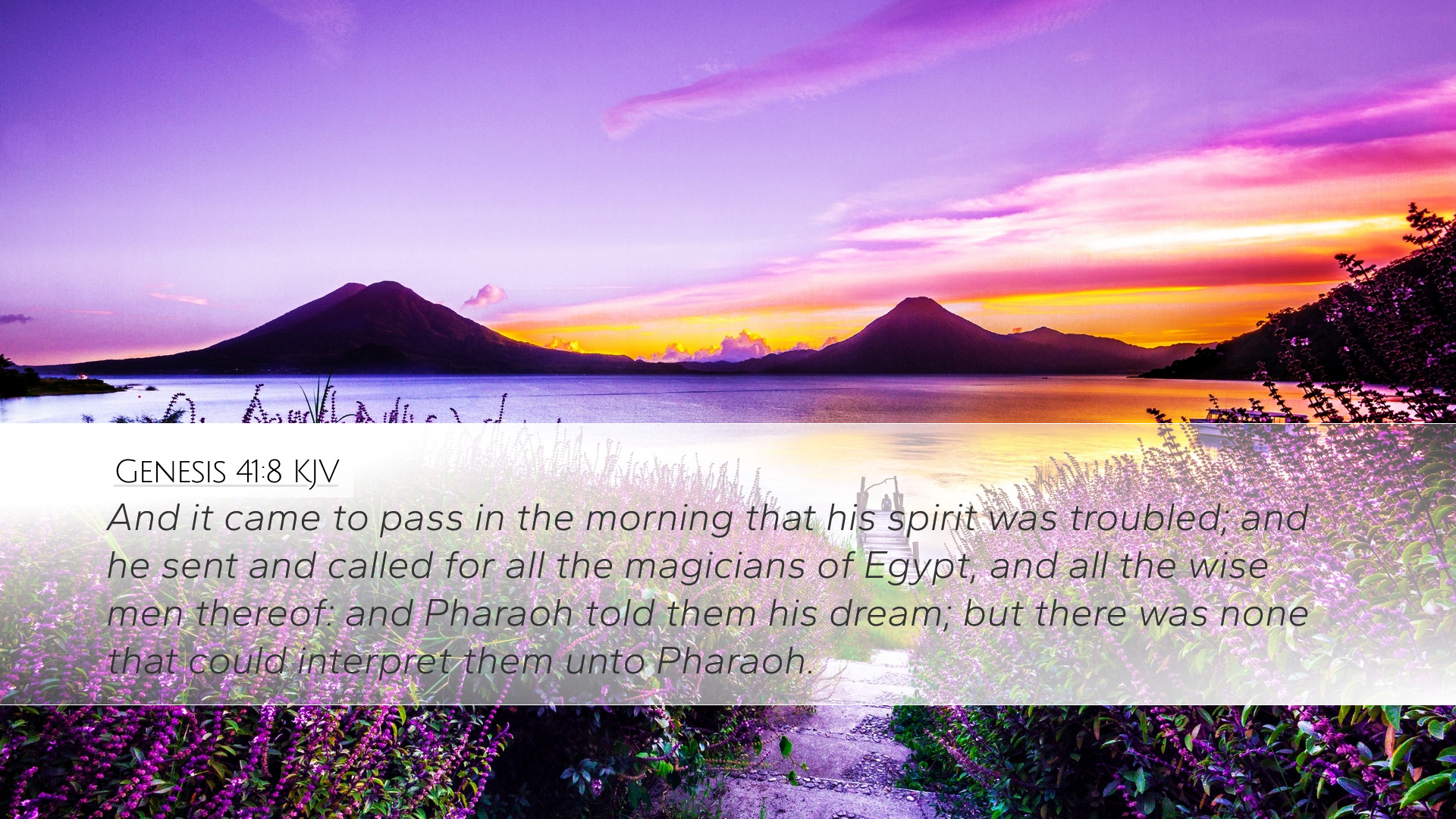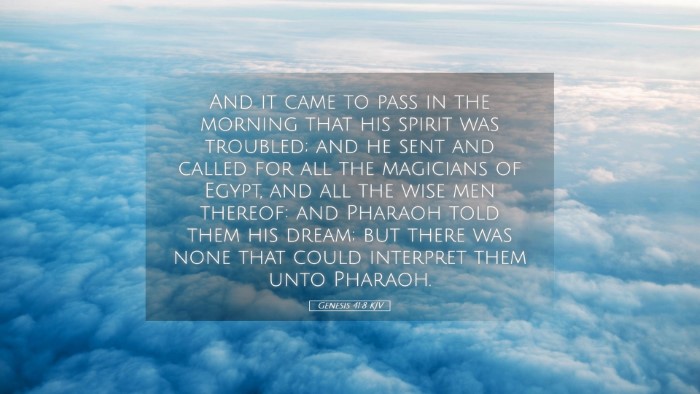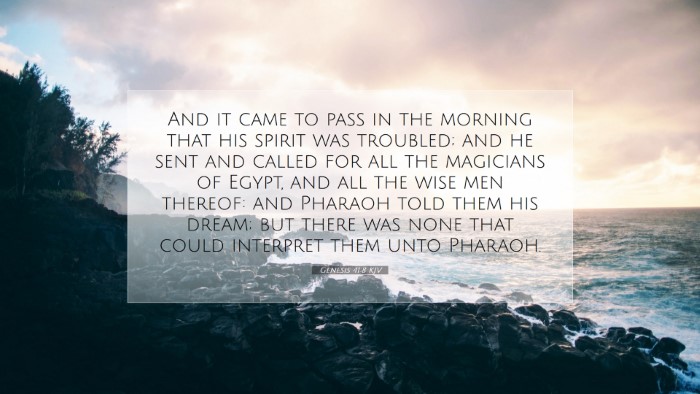Genesis 41:8 Commentary
Genesis 41:8 states:
“And it came to pass in the morning that his spirit was troubled; and he sent and called for all the magicians of Egypt, and all the wise men thereof: and Pharaoh told them his dream; but there was none that could interpret it.”
Contextual Overview
This verse is situated within the larger narrative of Joseph's rise to power in Egypt, following his unjust imprisonment. After Joseph's time in prison, he was summoned by Pharaoh in response to troubling dreams that none could interpret. This situation reveals the climactic conflict between divine revelation and human wisdom.
Key Themes and Insights
- The Sovereignty of God: The troubling dreams of Pharaoh indicate God’s control over nations and individuals, pointing towards an impending revelation that would set the stage for Joseph’s pivotal role in salvation history.
- The Failure of Human Wisdom: Pharaoh’s inability to find interpreters among the magicians and wise men of Egypt underscores the limitations of human understanding in comprehending God’s plans. As Barnes notes, this illustrates how earthly wisdom falls short when confronted with divine mysteries.
- The Role of Dreams in Divine Communication: Dreams in biblical narratives often serve as vessels for God's messages. Here, Pharaoh’s dreams are a crucial mechanism through which God sets in motion his divine plan for Egypt and beyond.
Commentary by Notable Scholars
Matthew Henry
Henry emphasizes the providential nature of Pharaoh’s dreams and their significance in the divine economy. He points out that the dreams are not merely random occurrences but are divinely ordained events that lead to Joseph's elevation and the saving of many lives. Henry argues that the troubling of Pharaoh's spirit indicates God’s intent to bring about a transformation not only in Egypt but also in Joseph's life.
Albert Barnes
Barnes reflects on the desperation of Pharaoh as he turns to his wise men and magicians. This moment highlights the inherent futility of relying on human wisdom when faced with spiritual matters. Barnes interprets Pharaoh’s troubled spirit as an invitation for God’s chosen vessel, Joseph, to emerge and fulfill his destiny. The absence of any interpretation serves to underscore the divine orchestration at play, setting the stage for God’s revelation through Joseph.
Adam Clarke
Clarke brings attention to the significance of the timing; the morning light symbolizes a new beginning not only for Pharaoh but ultimately for Joseph. He notes the various interpretations that Pharaoh could have derived from his dreams had he turned to God, rather than to the magicians. Clarke asserts that this passage serves as a reminder to seek divine wisdom above all else, especially when entrusted with leadership and responsibility.
Theological Implications
- Divine Revelation: The narrative urges believers to recognize the importance of seeking God's revelation in times of uncertainty. The failure of the magicians is a stark reminder that only God possesses the wisdom to unveil the future.
- Leadership and Responsibility: For pastors and leaders, this account serves as a cautionary tale about the limits of human understanding and the need to turn to God for guidance and direction in decision-making.
- Preparation for Future Challenges: Joseph's rise, rooted in his faithfulness and ability to interpret dreams, stands as an example of how God prepares His servants for challenging but essential roles in His salvific plan.
Conclusion
Genesis 41:8 sets the stage for a significant turning point in biblical history. Through the lens of these enduring commentaries, we see the interplay of divine providence and human frailty, emphasizing the need for divine wisdom over earthly understanding. As students, theologians, and pastors engage with this text, it invites reflection on how God communicates His will and the importance of relying on His guidance in all aspects of life and ministry.


